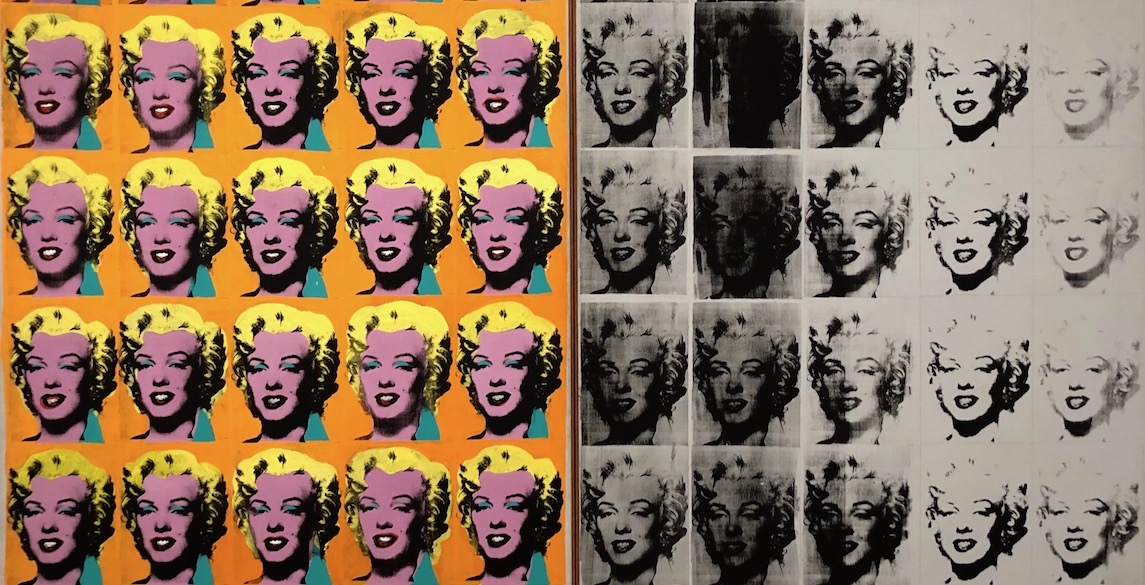Appropriation art, or the art of appropriation, is the use of pre-existing objects or images with little or no transformation applied to them. It follows in the spirit of Marcel Duchamp’s Readymades. The use of appropriation has played a significant role in art throughout the 20th century and has continued as a valid art form to the present. In the visual arts, the term “appropriation” refers to the proper adoption, borrowing, recycling, or sampling of aspects (or the entire form) of human-made visual culture. Inherent in our understanding of appropriation is the concept that the new work recontextualises whatever it borrows to create the new work. In the past decade, there has been a considerable rise in court cases citing plagiarism. Here are the Artlyst top ten most controversial works of Appropriation Art, and some of the court cases that followed. (Top Photo by Artlyst: Andy Warhol Marilyn Diptych 1962 © The Andy Warhol Foundation and Tate Modern)
10. Andy Warhol, Campbell’s Soup, 1968
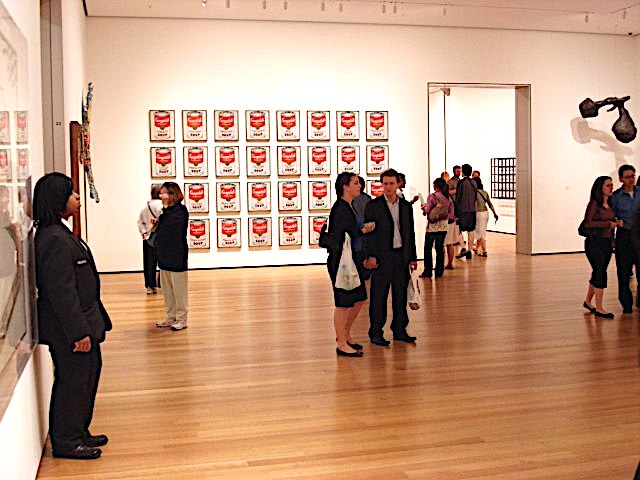
Andy Warhol faced a series of lawsuits from photographers whose work he appropriated and then silk-screened. Yet Warhol’s famous Campbell’s Soup Cans are generally held to be non-infringing, despite being clearly appropriated. Photo: Creative Commons Watch out for the Lynn Goldsmith Prince lawsuit case, read More Here
9. Jeff Koons, Rogers V. Koons
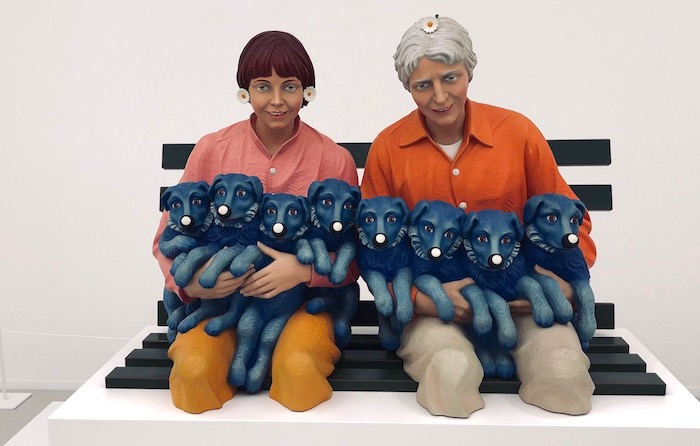
Koons has been sued a number of times; on this occasion, the artist was sued after he appropriated a photograph taken by Art Rogers of two people holding a bunch of puppies. Although Koons made a sculpture from the photo, changing the colours of the puppies (to bright blue) and altering a few other elements, the court rejected his parody defence, and it remains one of the most noteworthy cases involving modern art today.
8. Barbara Kruger, Hoepker V. Kruger
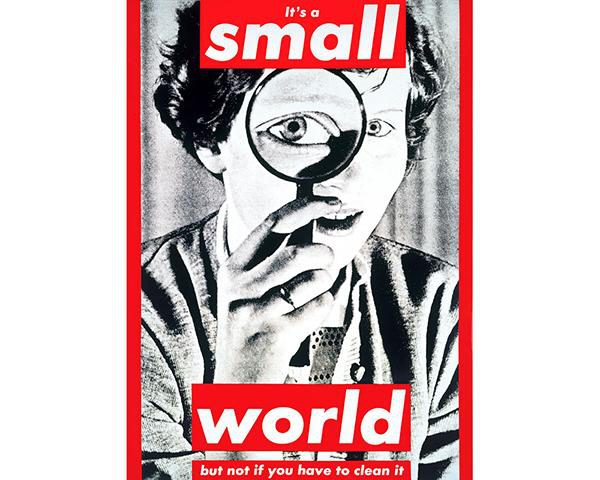
A well-known German photographer sued American artist Barbara Kruger for her use of a photograph of a woman with a magnifying glass. Kruger cropped and enlarged the image, and then superimposed three large red blocks containing words that read, “It’s a small world but not if you have to clean it.” Given that the photograph was in the public domain in the United States, the artist subsequently won the case.
7. Damien Hirst, Emms V. Hirst
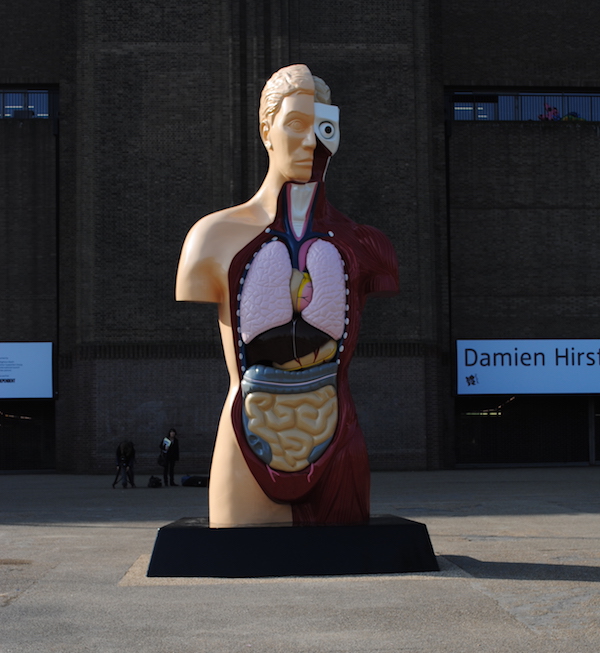
Hirst was sued for breach of copyright over his sculpture Hymm in 2000. The subject was a ‘Young Scientist Anatomy Set’ belonging to his son Connor, 10,000 of which are sold a year by Hull (Emms) Toy Manufacturer. Hirst created a 20-foot, six-ton enlargement of the Science Set figure, radically changing the perception of the object. The artist paid an undisclosed sum to two charities, Children Nationwide and the Toy Trust in an out-of-court settlement.
6. Sigmar Polke, Sauberes Auto, Gute Laune (Clean Car, High Spirits), 2002
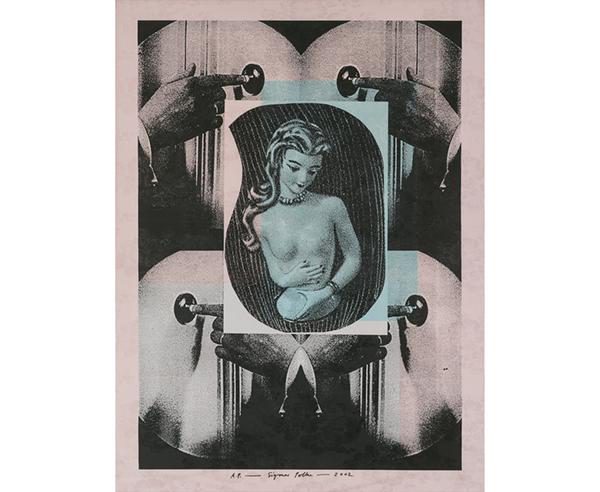
As an example of early appropriation, Polke, working in his style of “Capitalist Realism,” offered an ironic critique of consumerism in post-war Germany. Some of his best-known works were his collages of imagery from popular culture and advertising.
5. Louise Lawler, Foreground, 1984
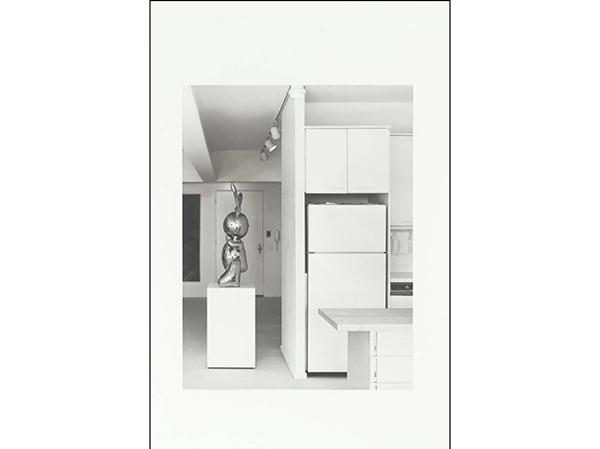
The artist’s photographs challenge the nature and display of art, providing alternative perspectives on art in situ, the literal nature of photography, and the documentary function of photography. The artist shot images of Warhol Brillo boxes in storage, a Picasso sculpture wrapped in plastic, Richter paintings in transport, and even unusual juxtapositions of artworks in exhibitions.
4. Shepard Fairey, AP V. Fairey

The famous street artist was sued by the AP for his appropriation of a photograph of Barack Obama that the artist used to create the iconic “HOPE” poster for Obama’s presidential campaign. The case was eventually settled, but the questions raised regarding the limits of fair use continue.
3. Luc Tuymans, Van Giel V. Tuymans

2. Marcel Duchamp, Fountain, 1917

Perhaps the original act of appropriation, in April 1917, Duchamp submitted a urinal the artist had purchased in the showroom of J. L. Mott Iron Works. He turned the object on its side and placed it on a pedestal, undermining its utilitarian associations. He then signed it “R. Mutt 1917” and named it Fountain. The piece sparked heated debates among the society’s directors and was ultimately rejected just hours before the exhibition was set to open. However, it would go on to form the concept of the ‘readymade’ in art.
1. Richard Prince, Cariou V. Prince


